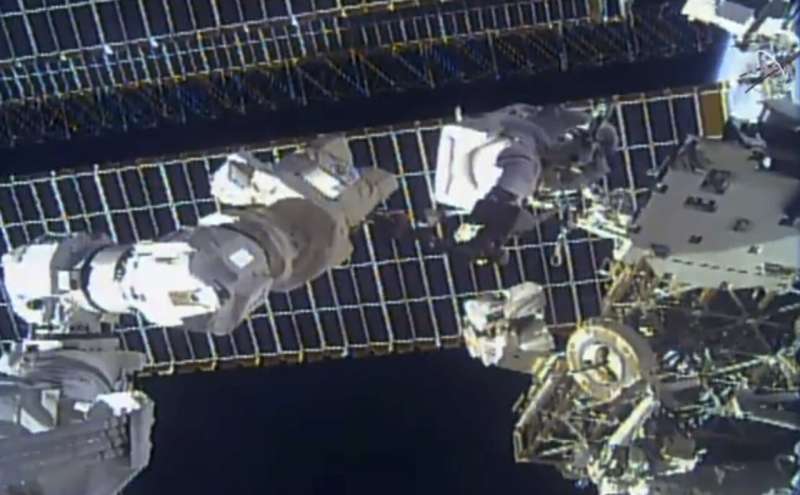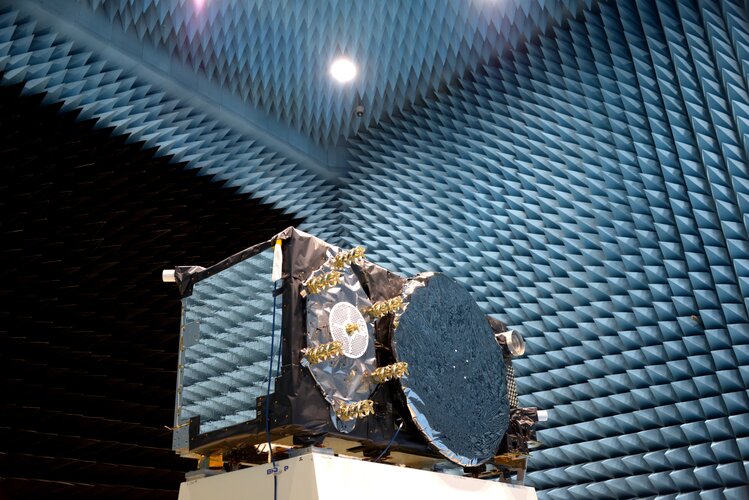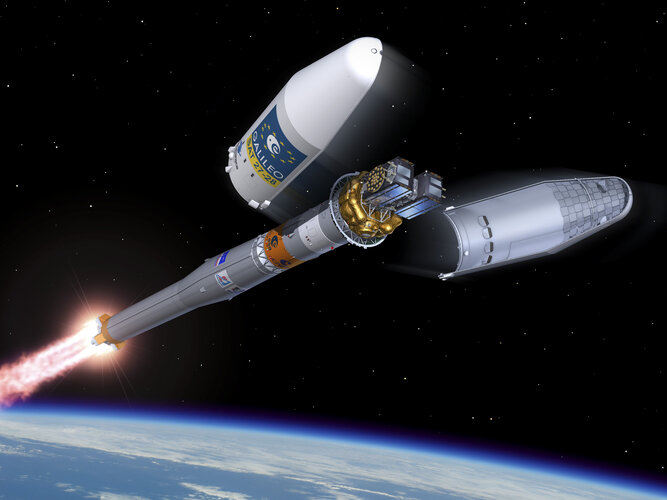
Copernical Team
NASA selects companies to develop commercial destinations in space
 NASA has signed agreements with three U.S. companies to develop designs of space stations and other commercial destinations in space. The agreements are part of the agency's efforts to enable a robust, American-led commercial economy in low-Earth orbit.
The total estimated award amount for all three funded Space Act Agreements is $415.6 million. The companies that received awards are:
NASA has signed agreements with three U.S. companies to develop designs of space stations and other commercial destinations in space. The agreements are part of the agency's efforts to enable a robust, American-led commercial economy in low-Earth orbit.
The total estimated award amount for all three funded Space Act Agreements is $415.6 million. The companies that received awards are: NASA awards $415 mn to fund three commercial space stations
 NASA on Thursday awarded three companies hundreds of millions of dollars to develop commercial space stations it hopes will eventually replace the International Space Station, which is due to retire around the end of the decade.
Jeff Bezos' Blue Origin, aerospace company Nanoracks, and defense contractor Northrop Grumman won $130 million, $160 million and $125.6 million contracts respectivel
NASA on Thursday awarded three companies hundreds of millions of dollars to develop commercial space stations it hopes will eventually replace the International Space Station, which is due to retire around the end of the decade.
Jeff Bezos' Blue Origin, aerospace company Nanoracks, and defense contractor Northrop Grumman won $130 million, $160 million and $125.6 million contracts respectivel Rocket Lab reveals Neutron launch vehicle's advanced architecture
 Building on Rocket Lab's proven experience developing the Electron launch vehicle, the second most frequently launched U.S. rocket annually since 2019, the advanced 8-ton payload class Neutron launch vehicle is designed to transform space access by delivering reliable and cost-effective launch services for satellite mega-constellations, deep space missions and human spaceflight. During today's l
Building on Rocket Lab's proven experience developing the Electron launch vehicle, the second most frequently launched U.S. rocket annually since 2019, the advanced 8-ton payload class Neutron launch vehicle is designed to transform space access by delivering reliable and cost-effective launch services for satellite mega-constellations, deep space missions and human spaceflight. During today's l Astronauts conclude spacewalk to replace antenna at space station
 Two NASA astronauts successfully wrapped up a spacewalk Thursday to replace a communications antenna faster than expected outside the International Space Station.
The new antenna was installed at around 9:45 a.m. EST, which NASA said was almost 90 minutes ahead of schedule. The pair spent the next few hours performing additional tasks to help prepare for future spacewalks.
The sp
Two NASA astronauts successfully wrapped up a spacewalk Thursday to replace a communications antenna faster than expected outside the International Space Station.
The new antenna was installed at around 9:45 a.m. EST, which NASA said was almost 90 minutes ahead of schedule. The pair spent the next few hours performing additional tasks to help prepare for future spacewalks.
The sp SpaceX successfully launches latest Starlink fleet from Florida
 SpaceX on Thursday launched 48 Starlink spacecraft from Florida as part of its plans to develop a second generation of communications satellites.
The Falcon 9 rocket successfully lifted off from Complex 40 at Cape Canaveral Space Force Station at about 6:12 p.m. EST.
SpaceX was also able to successfully land the first stage booster for the ninth time, its 89th successful recovery of
SpaceX on Thursday launched 48 Starlink spacecraft from Florida as part of its plans to develop a second generation of communications satellites.
The Falcon 9 rocket successfully lifted off from Complex 40 at Cape Canaveral Space Force Station at about 6:12 p.m. EST.
SpaceX was also able to successfully land the first stage booster for the ninth time, its 89th successful recovery of Northrop Grumman signs NASA to design space station for low earth orbit
 Northrop Grumman has signed a Space Act Agreement with NASA under the Commercial Low-Earth Orbit Development program for $125.6 million to design a safe, reliable and cost-effective commercial free-flying space station in low Earth orbit (LEO). Northrop Grumman's commercial space station design will use current flight systems and advanced crew-focused technology under development that allows for
Northrop Grumman has signed a Space Act Agreement with NASA under the Commercial Low-Earth Orbit Development program for $125.6 million to design a safe, reliable and cost-effective commercial free-flying space station in low Earth orbit (LEO). Northrop Grumman's commercial space station design will use current flight systems and advanced crew-focused technology under development that allows for Orbex to use Calor BioLPG for Prime launch
 Orbex and Calor have entered into an agreement that will see the iconic UK gas company supply the ultra-low carbon fuel that will launch the Orbex Prime rocket.
Under the terms of the new deal, Calor will supply Orbex with its BioLPG solution, a clean-burning propane produced from renewable feedstocks such as plant and vegetable waste material. This reduces CO2 emissions by up to 80 per ce
Orbex and Calor have entered into an agreement that will see the iconic UK gas company supply the ultra-low carbon fuel that will launch the Orbex Prime rocket.
Under the terms of the new deal, Calor will supply Orbex with its BioLPG solution, a clean-burning propane produced from renewable feedstocks such as plant and vegetable waste material. This reduces CO2 emissions by up to 80 per ce Spacewalking astronauts replace antenna after debris scare

Spacewalking astronauts replaced a broken antenna outside the International Space Station on Thursday after getting NASA's all-clear for orbiting debris.
U.S. astronauts Tom Marshburn and Kayla Barron were supposed to complete the job Tuesday, but NASA delayed the spacewalk because of potentially threatening space junk. NASA later determined the astronauts were safe to go out, despite a slightly increased risk of a punctured suit from satellite wreckage.
12 things you never knew about Galileo satellites

Europe’s Galileo satellite navigation system is providing the world’s most precise positioning services, but the satellites at its heart are surprisingly compact, and dependent on many different technologies to keep running. Here are 12 things you probably didn’t know about them:
Galileo launch postponed

Due to unavailability of a downrange tracking station, Arianespace has taken the decision to postpone the fueling of Galileo's three stage Soyuz launcher. The VS26 Soyuz launch vehicle and the satellites are in a stable and safe condition.
